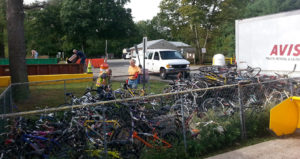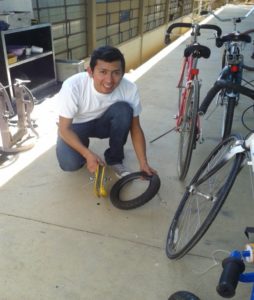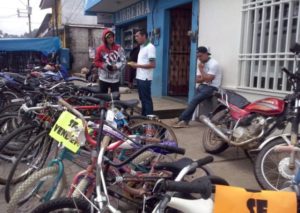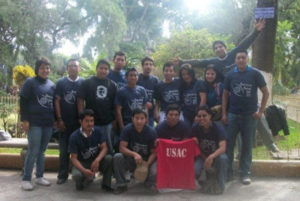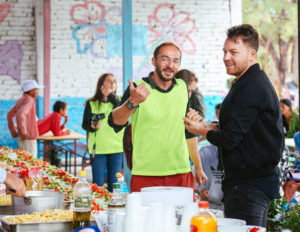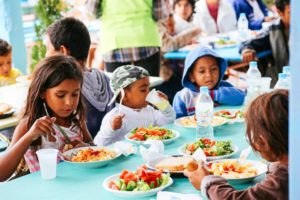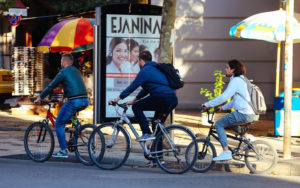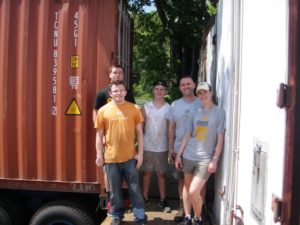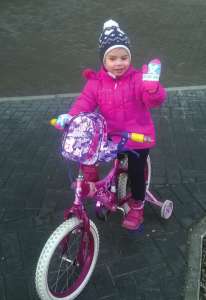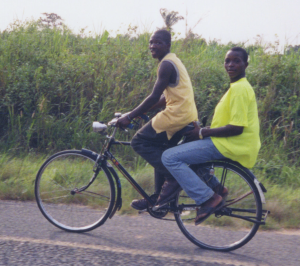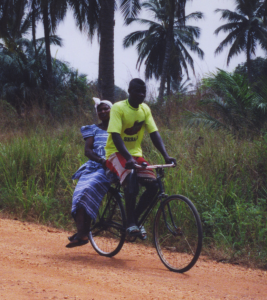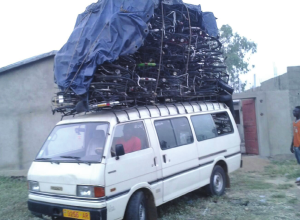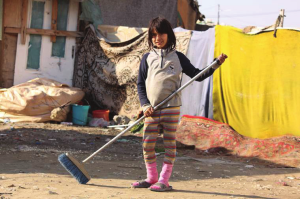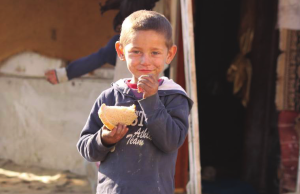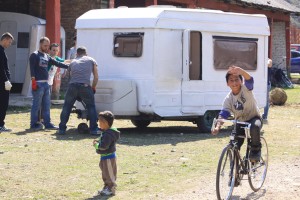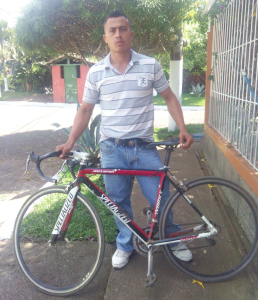by Liz Sweedy
Fall 2016 InGear
The Morris County Municipal Utilities Authority (MCMUA) has hosted a used bike and sewing machine collection for 14 consecutive years since 2003. The Pedals for Progress collection program aligns with the MCMUA’s overall vision to reduce waste, reuse items, and build a culture for sustainability. In those 14 years, the MCMUA has collected over 3,676 bikes and 26 sewing machines through the programs run in conjunction with Pedals for Progress and Sewing Peace.
Some people may be turned off by the idea of working in the solid waste field. Trash, you ask? Yes, trash, litter (which is different from trash), recyclables, hazardous waste, and vegetative waste. A world of waste that is so wildly interesting, there is never a dull moment! I have worked for the MCMUA for over 20 years in the recycling division and I have learned a lot about the behavior of people and our obsession with throwing things ‘away’. Most people do not think about where their waste ends up, or how much energy, natural resources, pollutants and fossil fuels were used or created in the process of making these items and what it takes to properly dispose of them.
The solid waste hierarchy lists waste reduction at the very top. The federal Environmental Protection Agency (EPA) has created a hierarchy which ranks various waste management strategies from most to least environmentally preferred. The hierarchy places emphasis on reducing, reusing, and recycling as key to sustainable materials management. It is important to purchase only items we really need. The second listing is reuse! It means to use again or more than once, give something a new purpose. Because we are a throw-away society it is difficult to get some people to understand the concept of reuse. Most of us want instant gratification by purchasing the latest, the biggest, the shiniest, the absolute BEST there is to buy, and quickly get rid of items that no longer suit our needs, wants or whims.
This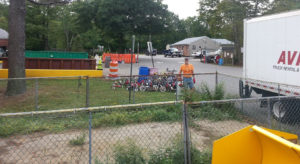 brings me to the lowly used bike standing on the curb, out for trash collection. It has a flat tire and a few scratches on the rear fender. It is not the prized possession it used to be when it was brand new. To the untrained eye it is a meager shadow of its former glory. Don’t judge this discarded bike that is out for trash. With a little elbow grease and a new tire this gem will become the new transportation for a student who currently walks 6 miles in order to get to school! It will provide the liberty and luxury to ride to school in less time than walking, and perhaps provide a ride to a passenger so he or she can avoid the long walk as well. Pedals for Progress, with the assistance of their partner agencies, delivers the chance of a lifetime to those who need it most. Some people don’t have any means of transportation and this opportunity can make such a positive impact on their lives.
brings me to the lowly used bike standing on the curb, out for trash collection. It has a flat tire and a few scratches on the rear fender. It is not the prized possession it used to be when it was brand new. To the untrained eye it is a meager shadow of its former glory. Don’t judge this discarded bike that is out for trash. With a little elbow grease and a new tire this gem will become the new transportation for a student who currently walks 6 miles in order to get to school! It will provide the liberty and luxury to ride to school in less time than walking, and perhaps provide a ride to a passenger so he or she can avoid the long walk as well. Pedals for Progress, with the assistance of their partner agencies, delivers the chance of a lifetime to those who need it most. Some people don’t have any means of transportation and this opportunity can make such a positive impact on their lives.

